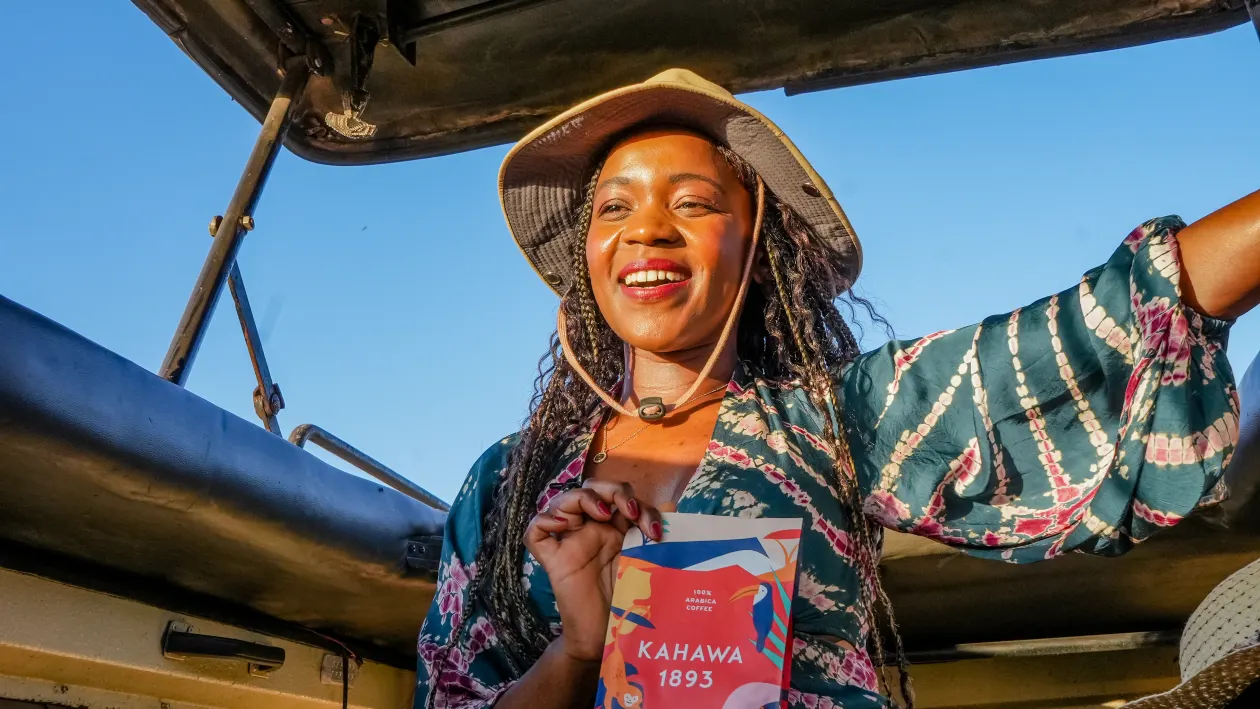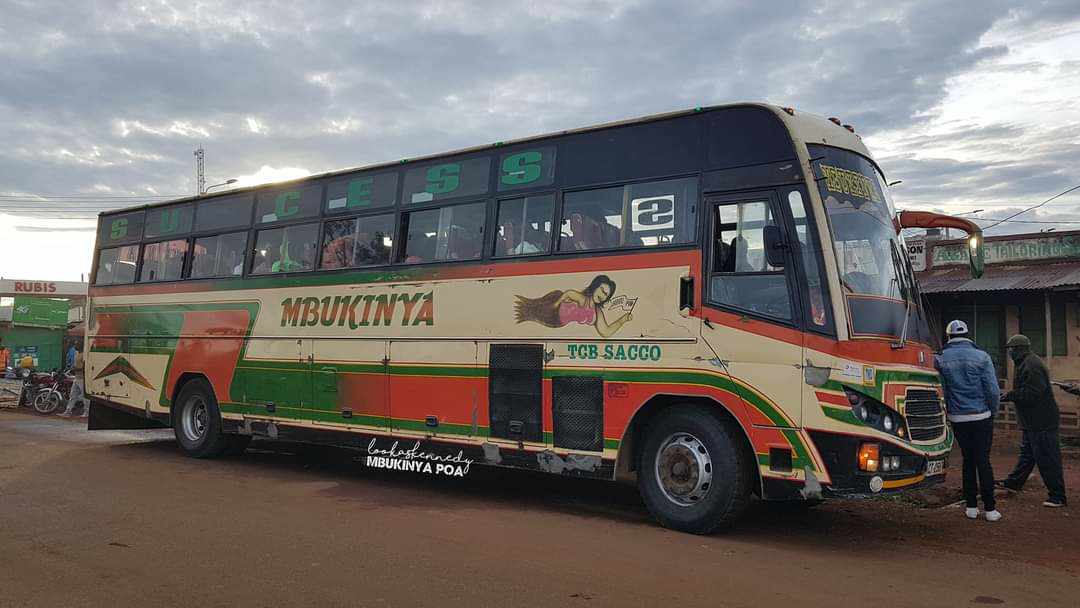The Entrepreneur
Richard Evans: Business Mogul in Kenya’s Horticulture and Hospitality
“In the long run, your reputation is everything,” says Sir Richard “Dicky” Evans.

:Richard Evans, a pioneer in Kenya’s horticulture and hospitality sectors, transformed adversity into opportunity. His companies, including Flamingo Horticulture and Hemingways Hotels, have set new standards in sustainable agriculture and luxury tourism while creating lasting impacts on local communities. Knighted for his contributions, Evans continues to inspire with his values of innovation, resilience, and integrity. From exporting Kenyan produce to nurturing young entrepreneurs, his legacy underscores the power of business to drive development in East Africa.
By Charles Wachira
Richard Evans’ entrepreneurial journey is a testament to resilience, innovation, and an unwavering commitment to East Africa’s development. Recently knighted in King Charles III’s New Year’s Honours List, Evans has made a significant impact on Kenya’s horticulture and hospitality industries while maintaining strong ties to British sports, particularly rugby.
A Journey Born Out of Adversity
Evans’ connection to East Africa began in the early 1970s, under challenging circumstances. After completing his undergraduate degree in Engineering from King’s College, London, he traveled to Uganda to teach local engineers how to build UN-funded clean water systems. However, his time in Uganda was tragically cut short during Idi Amin’s coup d’état in 1971, when two of his colleagues were killed. Evans was evacuated from the country later that year, leaving behind a region in turmoil but carrying with him a deep connection to East Africa.
That same year, Evans arrived in Kenya—a country that would become the cornerstone of his business success. “Kenya gave me a second chance,” he recalls. “The potential was immense, and I knew that my engineering skills could make a significant difference.”
Building a Horticulture Empire
In 1982, Evans founded Homegrown, a horticulture company that capitalized on Kenya’s fertile land and favorable climate. His goal was to improve fruit, vegetable, and flower production using modern irrigation techniques. Homegrown, later rebranded as Flamingo Horticulture, quickly grew to become one of the largest exporters of flowers, fruits, and vegetables to Europe.
“The key to success in agriculture is innovation,” Evans says. “We introduced modern irrigation methods that improved yields while conserving water, and that set us apart.” By the early 2000s, Flamingo Horticulture was employing thousands of Kenyans and playing a major role in the country’s agricultural exports.
Evans’ commitment to sustainable farming practices and technological advancements helped his company thrive, even as global markets fluctuated. “Success isn’t just about profits—it’s about creating value for the community,” Evans emphasizes. “Our growth has always been tied to improving the livelihoods of the people around us.”
Expanding into the Hospitality Industry
In 1997, Evans ventured into the hospitality industry by launching Hemingways Watamu, a luxury hotel on Kenya’s coast. The hotel quickly became a go-to destination for international tourists, offering high-end service while preserving Kenya’s unique coastal culture. Following the success of Hemingways Watamu, Evans opened Hemingways Karen in Nairobi and Ol Seki Mara, a luxury tented camp in the Maasai Mara known for its eco-friendly safari experiences.
“Hemingways was about showcasing the beauty of Kenya to the world,” Evans explains. “We wanted to offer unmatched luxury while ensuring that our operations respected Kenya’s natural environment.”
Today, Hemingways Hotels are recognized for their excellent service, luxury, and dedication to conservation. “The hospitality business is about providing experiences, not just accommodations. We focused on creating unforgettable memories while ensuring that we preserved the environment.”
Richard Evans and Rugby: From Captain to Chairman
Beyond his success in business, Evans made his mark in the world of rugby. He captained Kenya’s national rugby team in the early 1970s and later became the Chairman of Nondescripts RFC, one of the oldest and most prestigious rugby clubs in Kenya. In addition, Evans owned a British rugby team, underscoring his lifelong passion for the sport. “Rugby taught me the value of teamwork and discipline, lessons I’ve carried into my businesses,” Evans notes.
Lessons in Success: Resilience, Innovation, and Integrity
Reflecting on his entrepreneurial journey, Evans attributes his success to three core principles: resilience, innovation, and integrity.
- Resilience: “Every business faces challenges. What matters is how you handle them.” Evans has experienced numerous hurdles, from political instability to economic volatility, but he never let those obstacles derail his vision. “You must keep going, no matter how difficult things get.”
- Innovation: Throughout his career, Evans has been a firm believer in the power of innovation. “You can’t stand still in business. Whether it was introducing modern farming techniques or creating luxury eco-friendly hotels, we always stayed ahead by embracing new ideas.”
- Integrity: “In the long run, your reputation is everything,” Evans emphasizes. Whether paying fair wages to his farm workers or promoting sustainable tourism, he has always placed ethical practices at the heart of his businesses. “People do business with those they respect. Trust is the foundation of lasting success.”
Challenges and Achievements
Evans’ ventures were not without challenges. In the early days of Homegrown, scaling up the business and managing international logistics was particularly difficult. “Exporting fresh produce while maintaining quality was a logistical nightmare at times,” he shares. In the hospitality sector, navigating regulatory hurdles around land use and environmental conservation posed additional challenges. “But those challenges pushed us to be more innovative,” Evans says.
Despite these hurdles, Evans’ businesses flourished. Flamingo Horticulture became a leader in sustainable agriculture, while Hemingways Hotels set a new standard for luxury tourism in Kenya.
A Role Model in Business
Evans credits much of his success to his early experiences in engineering and agriculture in East Africa, as well as the influence of notable entrepreneurs like Sir Richard Branson. “Branson’s ability to reinvent himself and his businesses across different industries is something I admire,” Evans says. “He taught me that taking risks and challenging the status quo are key to long-term success.”
Looking to the Future: Mentoring the Next Generation
Now in his later years, with a knighthood under his belt, Evans remains focused on expanding his ventures and mentoring young entrepreneurs. “Kenya has given me so much, and I want to give back by supporting the next generation of business leaders.”
His advice for aspiring entrepreneurs? “Take risks, think differently, and always keep your integrity intact. The opportunities in this country are limitless if you have the vision and the grit to pursue them.”
Leaving a Lasting Legacy
For Richard Evans, success is not measured by profits alone but by the positive impact his businesses have had on communities. His ventures in horticulture and hospitality have created jobs, supported families, and contributed to Kenya’s global standing.
“At the end of the day, success is about making a difference,” Evans concludes. “If you can leave a lasting, positive impact, you’ve done something truly worthwhile.”
Richard Evans’ story is a remarkable example of what resilience, innovation, and integrity can achieve—qualities that earned him a knighthood and cemented his place as one of East Africa’s most influential business figures.
Keywords:Richard Evans Kenya entrepreneur:Flamingo Horticulture success:Hemingways luxury hotels:Kenya horticulture industry:Sustainable tourism Kenya
The Entrepreneur
Miss Rwanda 2022, Divine Muheto, Faces Drink-Driving Scandal

: Miss Rwanda 2022, Divine Muheto, was arrested for drink-driving, fined, and
detained after a car crash. She expresses regret and seeks forgiveness for her
actions.
From Beauty Queen to Legal Controversy
Divine Muheto, 21, crowned Miss Rwanda 2022, rose to prominence as a symbol of
beauty and ambition. She always believed she had what it took to achieve her childhood
dream of becoming a beauty queen.
Her journey began after high school when she entered the Miss Rwanda competition,
ultimately claiming the coveted title.
Reflecting on her success, she once said, “When you fear, you can’t make anything
different in life, but when you are fearless, a lot of positive things come your way.”
Legal Troubles in 2024
However, her reign as Miss Rwanda has been overshadowed by controversy. In late
2024, Muheto was arrested following a drink-driving incident in Kigali.

Reports from the Rwanda National Police (RNP) confirmed that she was caught driving
under the influence of alcohol without a valid license, resulting in a crash that destroyed
public infrastructure, including a street light pole and palm trees.
The police also noted that Muheto fled the scene of the accident. She was subsequently
fined 190,000 Rwandan francs (approximately $140) and detained.
This incident marked a troubling pattern, as the beauty queen had previously faced
similar charges in September 2023, when she crashed her car into a building while
driving drunk.
Silent Remorse and Public Engagement
Muheto, the daughter of Assistant Commissioner of Police Francis Muheto, has
remained largely silent in the media following her arrest, though her legal team has
expressed that she deeply regrets her actions and has sought forgiveness.
Despite this, she continues to be a public figure, engaged in various activities. Her legal troubleshave raised concerns, but she remains resolute in her belief that life’s challenges present growth opportunities.

Inspirational Messages and Support System
While her parents have largely stayed out of the spotlight, Divine Muheto has continued
to inspire many young people in Rwanda, emphasising resilience and self-improvement.
She once said, “I knew I had what it takes to the last dot,” and even in the face of
adversity, she strives to move forward, learning from her mistakes and striving to make
a positive impact.
She Business
How Margaret Nyamumbo Built Kahawa 1893 from the Ground Up

: Discover Margaret Nyamumbo’s journey from Kenya to the U.S. and how she
built Kahawa 1893 to empower women coffee farmers, achieving business
success and social impact
Early Life and Education: Pursuing Global Opportunities
Margaret Nyamumbo’s entrepreneurial journey began in Kenya, where she grew up on a coffee
farm. However, she moved to the U.S., a decision that significantly shaped her path.
In 2000, she travelled to Smith College, a prestigious liberal arts institution in Massachusetts,
to study economics.
Her desire to study abroad stemmed from the limited educational opportunities available for
women in Kenya at the time. As she later explained, her family encouraged her decision, viewing it as a way to give her the best opportunities for success.

After earning her degree from Smith College, Nyamumbo pursued an MBA at the Wharton
School of the University of Pennsylvania, known for its rigorous business programs.
This solidified her foundation for a future in business, although it was the allure of her roots and a passion for coffee that eventually led her back to entrepreneurship.
From Corporate Work to Entrepreneurship: Embracing Coffee Culture
After completing her studies, Nyamumbo worked in investment banking and consulting, but the world of corporate finance didn’t fully satisfy her ambitions.
It was her return to the coffee industry, deeply connected to her Kenyan heritage, that drove
her entrepreneurial leap. With a vision to support East African coffee farmers, particularly women, Nyamumbo founded Kahawa 1893 in 2018, a coffee brand dedicated to highlighting Kenya’s coffee culture while mpowering local farmers.
The name “Kahawa” is the Swahili word for coffee, while “1893” marks the year when coffee
was first commercially grown in Kenya, grounding her brand in historical significance.
Through Kahawa 1893, Nyamumbo aimed to bring a new approach to the coffee business, one
that not only celebrated East African coffee but also created fair wages for farmers.
Building a Brand with Purpose: Empowering Farmers
Nyamumbo’s vision for Kahawa 1893 went beyond just selling coffee.
She wanted to create a direct impact on the lives of the farmers growing the coffee beans.
The brand’s model incorporated a system where customers could tip the farmers directly via a
QR code found on the coffee bags.
This innovation set the company apart from competitors and positioned it as a socially
responsible business that directly benefited those involved in the production process.
In 2021, Kahawa 1893 hit a major milestone, getting its coffee stocked in Trader Joe’s—the
first Black- and woman-owned coffee brand to be featured there.
This breakthrough moment was significant for Nyamumbo, marking the recognition of her hard work and her commitment to uplifting local farmers.
Overcoming Challenges: What It Takes to Succeed
Despite the challenges of entering a highly competitive market, Nyamumbo’s determination
never wavered. In a 2022 interview with Forbes, she shared her thoughts on what it takes to be a successful entrepreneur.
“You have to be able to take the punches and keep moving,” she said. Her advice reflects the
reality of entrepreneurship: persistence, resilience, and a willingness to learn from failure are
crucial for success.
Nyamumbo also emphasised the importance of passion. “You’ve got to love what you do, or you won’t have the energy to push through the tough times,” she said.
These values have guided her journey, driving Kahawa 1893 to not only succeed but also to
change the way the coffee industry operates, particularly about fair trade and community
empowerment.
The Future of Kahawa 1893: Expanding Horizons
With her success on platforms like Shark Tank and continued global distribution, Nyamumbo’s
Kahawa 1893 is poised for growth.

Her brand continues to expand its reach, and the emphasis on ethical sourcing, community
impact, and high-quality coffee will likely remain at the heart of her business model as she looks to further innovate in the global coffee market.
Through Kahawa 1893, Nyamumbo has shown that business success is not just about
profits—it’s about purpose, people, and passion.
The Entrepreneur
Paul Mburu Muthumbi: Building Kenya’s Mbukinya Bus Empire
Mbukinya faced tough early challenges: stiff competition, unreliable drivers, and high operating costs. Fuel price hikes and maintenance expenses cut into profits, and banks hesitated to fund small, high-risk PSV businesses. ‘There were days I doubted my choice,’ Paul Mburu recalls, ‘but I believed hard work would pay off.’”

Born and raised in Limuru, Kiambu County, Paul Mburu Muthumbi, now 90, has lived a life that exemplifies resilience and determination.
His story is not just one of personal triumph, but also a testament to the power of persistence in the face of adversity.
As a young man, Paul was passionate about the public transport sector, inspired by the buses that passed through his village. “I always knew I wanted to be involved in transport. I just didn’t know how,” he says.
In 1952, after completing his final exams, Paul found himself navigating the difficult job market.
In 1992, armed with little more than determination, Paul began hawking eggs in Nairobi’s busy streets, trying to make ends meet. “I knew that if I worked hard and kept my eyes open for opportunities, I could eventually do better,” he recalls.
It was in these early years of struggling in the informal sector that Paul learned crucial lessons about customer service, managing a small business, and the importance of reinvestment. “I used every penny from selling eggs to save for the next big step,” Paul explains.
Adding, “It wasn’t easy, but I knew that if I worked hard and kept my eyes open for opportunities, I could do better,” he recalls. Over the next 11 years, Paul saved KSh 6,000, which he used to invest in his first bus—a second-hand vehicle that would mark the beginning of his journey in the public transport sector.
The Birth of Mbukinya in 2000
In 2000, after nearly a decade of honing his entrepreneurial skills, Paul saw a potential opportunity in the public transport sector.
Nairobi, the capital city of Kenya, had a growing population, and reliable transportation services were in short supply. Recognizing the gap, he decided to take a bold leap and venture into the PSV industry.
With a small loan from a local microfinance bank, Paul bought his first second-hand bus.
The vehicle cost him KSh 800,000, an amount he managed to secure through a personal guarantee and a strong relationship with the local bank. “I didn’t have much collateral, but my reputation from my small egg business helped me convince the bank to lend me the money,” he says.
Paul registered Mbukinya, a name inspired by his family, and launched the business with a single bus operating on one route in Nairobi.
The early days were tough, with the bus struggling to fill seats and competition from well-established PSV companies. “The first few months were the hardest,” Paul admits.
“The industry was full of players, and many were set in their ways. But I believed in offering better service, and that’s how we started to build our reputation.”
Overcoming Early Challenges
The road ahead was fraught with challenges.
Mbukinya’s initial struggles included fierce competition, unreliable drivers, and high operational costs.
Paul recalls how fuel price fluctuations and maintenance costs often ate into the company’s meagre profits. “There were days when I wondered if I’d made the right choice. But I knew that with consistency and hard work, we could turn things around,” he says.
One of the biggest hurdles Paul faced was a lack of financing to expand his fleet.
In Kenya, many banks are reluctant to lend to new and small businesses, especially in the transport sector, which is viewed as high-risk.
“It was hard to get financial support from banks. They didn’t see the potential in PSV businesses back then,” Paul explains.
However, through persistence, he managed to secure another loan in 2003 from a local bank, this time amounting to KSh 1.5 million (US $.11,27.91).With this loan, he expanded his fleet to three buses.
“The key was to prove that I could repay the loans,” he says. “I made sure that Mbukinya’s buses were always well-maintained and on time. Punctuality became our trademark.”
Building a Reputation and Expanding the Fleet
By 2005, Mbukinya began to gain traction. Paul focused on customer satisfaction, ensuring his buses were clean, his drivers were professional, and the schedules were strictly adhered to.
“A happy passenger is a loyal passenger,” Paul reflects.
This commitment to service quickly paid off, and soon, the buses were consistently full, with more customers opting for his service over competitors.
To further build the company’s reputation, Paul expanded Mbukinya’s services to other major towns in Kenya.
By 2010, the company had expanded its fleet to 10 buses.
He used the profits from his expanding fleet to invest in modernising the buses, replacing older vehicles with newer, more fuel-efficient models. This move helped reduce operational costs, making the business more profitable.
In 2012, Mbukinya hit another milestone when it became one of the first PSV companies in Kenya to introduce an electronic payment system, allowing passengers to pay via mobile money platforms like M-Pesa.
This tech-forward move attracted a new generation of commuters who valued convenience.
Navigating Economic Turmoil and the Role of Banks
As with any business, the road wasn’t always smooth.
In 2015, Kenya’s PSV industry underwent a major regulatory shift. The government introduced new licensing and inspection requirements, which required operators like Paul to invest in fleet upgrades and adhere to stricter safety standards.
“It was a tough time for all of us in the industry,” Paul recalls. “The new regulations meant significant investments in safety equipment and training. But I saw this as an opportunity to differentiate Mbukinya from other operators.”
Despite the financial strain, Paul’s good relationship with banks helped him secure the necessary funding to meet the new regulations.
“The banks saw that we were committed to the business and to complying with regulations. They helped us get through those challenging times,” he says.
In 2018, Paul was able to secure a larger loan to purchase 15 more buses, growing the fleet to over 30 vehicles. His strong ties with financial institutions, built on years of consistent business practices, allowed him to access capital that many of his competitors struggled to obtain.
A Crisis with the Hino Kenya Buses
Despite the steady growth and success, Mbukinya faced a significant setback in 2019. The company had acquired 41 Toyota Hino buses, which had initially seemed like a smart investment.
However, soon after their acquisition, the buses developed severe mechanical problems, causing a major disruption in Mbukinya’s operations. The buses, which were still within their warranty period, posed a serious challenge to the company.
To address the issue, Mbukinya returned the buses to Toyota, who assumed ownership and took on the responsibility of repairing them.
According to Muthumbi, he received KSh 60 million for the buses, but he emphasised that this amount did not fully cover the massive losses the company incurred.
“I had invested billions into those buses, and the repairs took a toll on our finances. It was a huge setback,” Paul explains.
The incident was particularly painful for Mbukinya, as the company had put significant faith in the vehicles, which were expected to bolster the fleet and improve operational efficiency.
The crisis put a strain on Mbukinya’s reputation and finances, requiring both tactical responses and long-term strategy changes.
The Night Ban Controversy
In addition to the challenges with the buses, Paul Mburu Muthumbi also found himself at odds with the National Transport and Safety Authority (NTSA) over the controversial night travel ban.
In December 2013, NTSA introduced a policy restricting public service vehicles from operating between 10 pm and 5 am, citing safety concerns due to accidents during late-night travels.
This decision was met with resistance from several PSV operators, including Muthumbi, who felt that the ban was unfairly detrimental to his business.
“The night ban hit our income hard. Losing those nighttime routes meant a significant drop in revenue,” he explains.
As the chairman of the Kenya Country Bus Owners’ Association (KCBOA), Muthumbi was a vocal critic of the policy.
He even threatened to take legal action to have the ban nullified, arguing that it unfairly affected many small PSV operators who relied on night services to stay competitive.
“We’re being punished for an issue that isn’t fully in our control,” Paul said at the time. “We’ll fight this ban in court if necessary, as it directly threatens our livelihoods.”
These challenges were particularly daunting, but they didn’t deter Muthumbi. Instead, he continued to press forward, proving his resilience in the face of adversity.
His ability to navigate these difficult situations further solidified his reputation as a determined entrepreneur in Kenya’s highly competitive transport sector.
Giving Back and the Road Ahead
Today, Mbukinya operates a fleet of 50 buses, covering multiple routes across Kenya and employing over 200 people.
Paul’s story is a testament to his resilience and vision. Beyond business, he has given back to his community, sponsoring educational programs and offering employment to many young Kenyans.
“I’ve always believed that success isn’t just about making money; it’s about lifting others along the way,” says Paul, who has invested in training programs for his staff and offered financial support to local schools.
Looking to the future, Paul is planning further expansions, with a focus on sustainability.
“I want Mbukinya to be a company that not only leads in transport but also sets the standard for environmental responsibility. We’re looking into green technologies like electric buses in the next five years,” he says.
From hawking eggs to running a transport empire, Paul Mburu Muthumbi’s story shows that with vision, resilience, and a willingness to embrace change, success is always within reach.
-

 Business & Money8 months ago
Business & Money8 months agoEquity Group Announces Kshs 15.1 Billion Dividend Amid Strong Performance
-

 Politics3 months ago
Politics3 months agoFred Okengo Matiang’i vs. President William Ruto: A 2027 Election Showdown
-

 Politics2 months ago
Politics2 months agoIchung’wah Faces Mt. Kenya Backlash Over Gachagua Impeachment Support
-

 Politics4 months ago
Politics4 months agoPresident Ruto’s Bold Cabinet Dismissal Sparks Hope for Change
-

 Politics5 months ago
Politics5 months agoKenya Grapples with Investor Confidence Crisis Amid Tax Protest Fallout
-

 Politics5 months ago
Politics5 months agoPresident Ruto’s Lavish Spending Amid Kenya’s Economic Struggles Sparks Outrage
-

 Politics4 months ago
Politics4 months agoJohn Mbadi Takes Over Kenya’s Treasury: Challenges Ahead
-

 Business & Money1 week ago
Business & Money1 week agoMeet Kariuki Ngari: Standard Chartered Bank’s new CEO of Africa. What’s Next?





